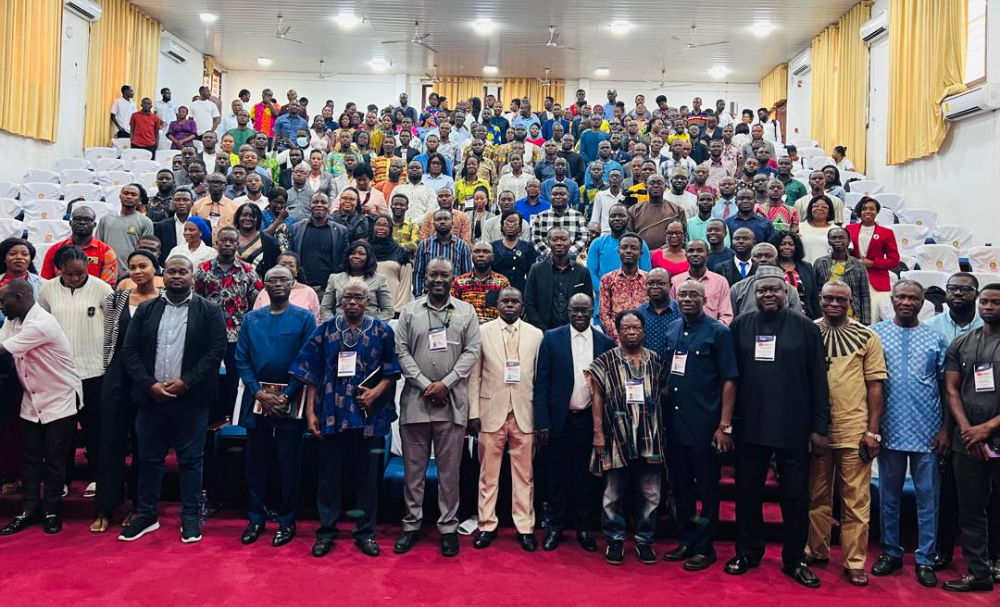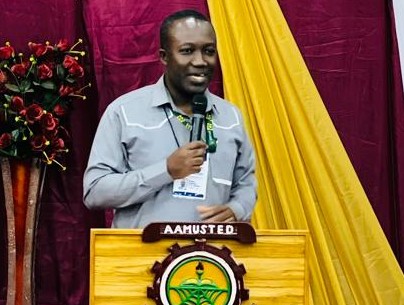Professor Daniel Duah, Dean of the International Programmes Office at KNUST, has underscored the urgency for academic institutions to embrace Artificial Intelligence (AI) as a strategic tool for relevance and impact in a rapidly evolving global landscape.
This was contained in his address at the 2nd Postgraduate Research Conference hosted by the Akenten Appiah-Menka University of Skills Training and Entrepreneurial Development (AAMUSTED) from August 6–7, 2025.
Prof. Duah focused on education and illustrated how AI enhances productivity, simplifies complex tasks, and accelerates research through rapid data analysis. “AI is not just a tool; it is the future of education,” he declared.
Linking AI to specific SDGs, Professor Duah identified Goals 4 (Quality Education), 8 (Decent Work and Economic Growth), 9 (Industry, Innovation and Infrastructure), and 10 (Reduced Inequalities) as areas where AI can drive significant progress. “Sustainable development does not only look at the present generation, but posterity,” he remarked.
He also highlighted KNUST’s institutional innovations, including the Responsible Artificial Intelligence Lab, the Virtual Reality Hub at the E-Learning Centre, and the university’s upcoming Summer School focused on AI. These initiatives, he said, reflect KNUST’s commitment to ethical and responsible AI integration in higher education.
The conference which convened scholars and researchers under the theme “Artificial Intelligence and Higher Education: Catalyzing Progress towards the Sustainable Development Goals.” The event explored the transformative potential of AI in advancing education and sustainable development.

AAMUSTED Vice-Chancellor, Professor Frederick Kwaku Sarfo, emphasized the forum’s role in fostering research collaboration and achieving the United Nations Sustainable Development Goals (SDGs). “Studies show that integrating AI in higher education could help achieve 11 out of the 17 goals,” he noted.

















